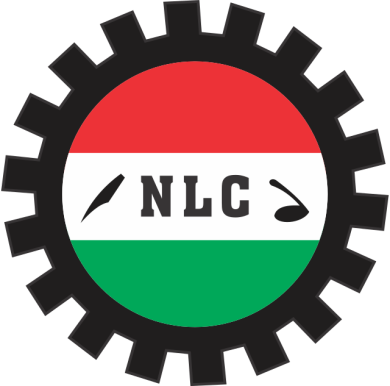STAKEHOLDERS in the Nigerian labour market have expressed outrage over increasing illegal profits from forced labour in the private economy globally, including Nigeria.
According to the latest report from the International Labour Organisation (ILO), forced labour generated not less than US$236 billion in illegal profits in a year.
The total amount of illegal profits from forced labour has risen by US$64 billion that is 37 per cent since 2014.
The ILO report informed that this was a dramatic increase that had been fuelled by both growth in the number of people forced into labour, as well as higher profits generated from the exploitation of victims.
The ILO report, “Profits and Poverty: The economics of forced labour”, estimated that traffickers and criminals were generating close to US$10,000 per victim, up from US$8,269 (adjusted for inflation) a decade ago.
Total annual illegal profits from forced labour are highest in Europe and Central Asia (US$84 billion), followed by Asia and the Pacific (US$62 billion), the Americas (US$52 billion), Africa (US$20 billion), and the Arab States (US$18 billion).
The report noted that forced commercial sexual exploitation accounts for more than two-thirds (73 per cent) of the total illegal profits, despite accounting for only 27 per cent of the total number of victims in privately imposed labour.
These numbers are explained by the huge difference in per victim profits between forced commercial sexual exploitation and other forms of non-state forced labour exploitation – US$27,252 profits per victim for the former against US$3,687 profits per victim for the latter.
After forced commercial sexual exploitation, the sector with the highest annual illegal profits from forced labour is industry, at US$35 billion, followed by services (US$20.8 billion), agriculture (US$5.0 billion), and domestic work (US$2.6 billion). These illegal profits are the wages that rightfully belong in the pockets of workers but instead remain in the hands of their exploiters, as a result of their coercive practices.
Speaking on the report, ILO Director-General, Gilbert F. Houngbo, said “Forced labour perpetuates cycles of poverty and exploitation and strikes at the heart of human dignity. We now know that the situation has only got worse. The international community must urgently come together to take action to end this injustice.
“There were 27.6 million people engaged in forced labour on any given day in 2021. This figure translates to 3.5 people for every thousand people in the world. Between 2016 and 2021 the number of people in forced labour increased by 2.7 million.
“People in forced labour are subject to multiple forms of coercion, the deliberate and systematic withholding of wages being amongst the most common. Forced labour perpetuates cycles of poverty and exploitation and strikes at the heart of human dignity. We now know that the situation has only got worse. The international community must urgently come together to take action to end this injustice, safeguard workers’ rights, and uphold the principles of fairness and equality for all.”
The report stresses the urgent need for investment in enforcement measures to stem illegal profit flows and hold perpetrators accountable. It recommends strengthening legal frameworks, providing training for enforcement officials extending labour inspection into high-risk sectors, and better coordination between labour and criminal law enforcement.
Yet forced labour cannot be ended through law enforcement measures alone, enforcement actions must be part of a comprehensive approach that prioritizes addressing root causes and safeguarding victims, underlines the report.
Reacting, President of Nigeria Labour Congress, NLC, Joe Ajaero, said “The truth is that profit from various organised crimes worldwide is increasing. Incidences of increasing forced labour which to us is organised and orchestrated in many countries with its various diversities is not surprising. The reality is that it shows that throughout the world including Africa, the human being as a worker continues to go through various forms of exploitation which includes being forced to work against their will or outright slavery.
“It underscores our continued insistence on the fact that only labour can truly create wealth so the reason for the continuous assault on the rights of workers to accelerate their exploitation and increase profits for culprits around the world.
“This further underpins the need for an urgent action globally to strengthen the instruments of adherence and compliance to the various instruments of Convention 029 of the ILO to protect people of the world from various forms of forced Labour. Subjugating any human being anywhere to compulsory Labour is sub-human thus unacceptable.
“That Africa accounts for about 8 per cent of the mentioned value is also worrying given the level of Africa’s contribution to global wealth creation which is far less than its contribution to global crime of forced labour. It demonstrates the need for the AU and the various trade union networks including the ILO to deepen the various networks and institutions for monitoring and protection of the continent’s workforce.
Similarly, President of the Association of Senior Staff of Banks, Insurance and Financial Institutions, ASSBIFI, Olusoji Oluwole, said “Forced labor is a global problem that has just remained a topic of discussion in all international fora but with little or no visible action to stop it. The report on the growth in profit is a clear indication of the lack of commitment to end, or at best control “Bringing it home, we have regular reports of factories that practice what is not different from forced labor as we find in Asian countries yet our leaders have failed to investigate and bring this injustice to an end. Rather, the labor movements that are bold enough to speak out are the ones being hounded. It is time to review our laws to remove gaps that enable such practices and consciously enforce them without fear. Then we can be confident that those in authority actually care and are indeed not part of the problem.”
MINILS DG
On his part, the Director-General of Michael Imoudu National Institute of Labour Studies, Issa Aremu, said the high rate of profit from forced labour ‘confirms the need for urgent decent work agenda in Africa.
Decent work means labour and employers as well as government must promote standards and rights at work that abolish child labour, ensure those workers’ constitutionally protected rights to dignity, equality and fair labour practices, amongst others, are safeguarded by appropriate legal framework. Force labour underdevelops Africa’s labour market.






